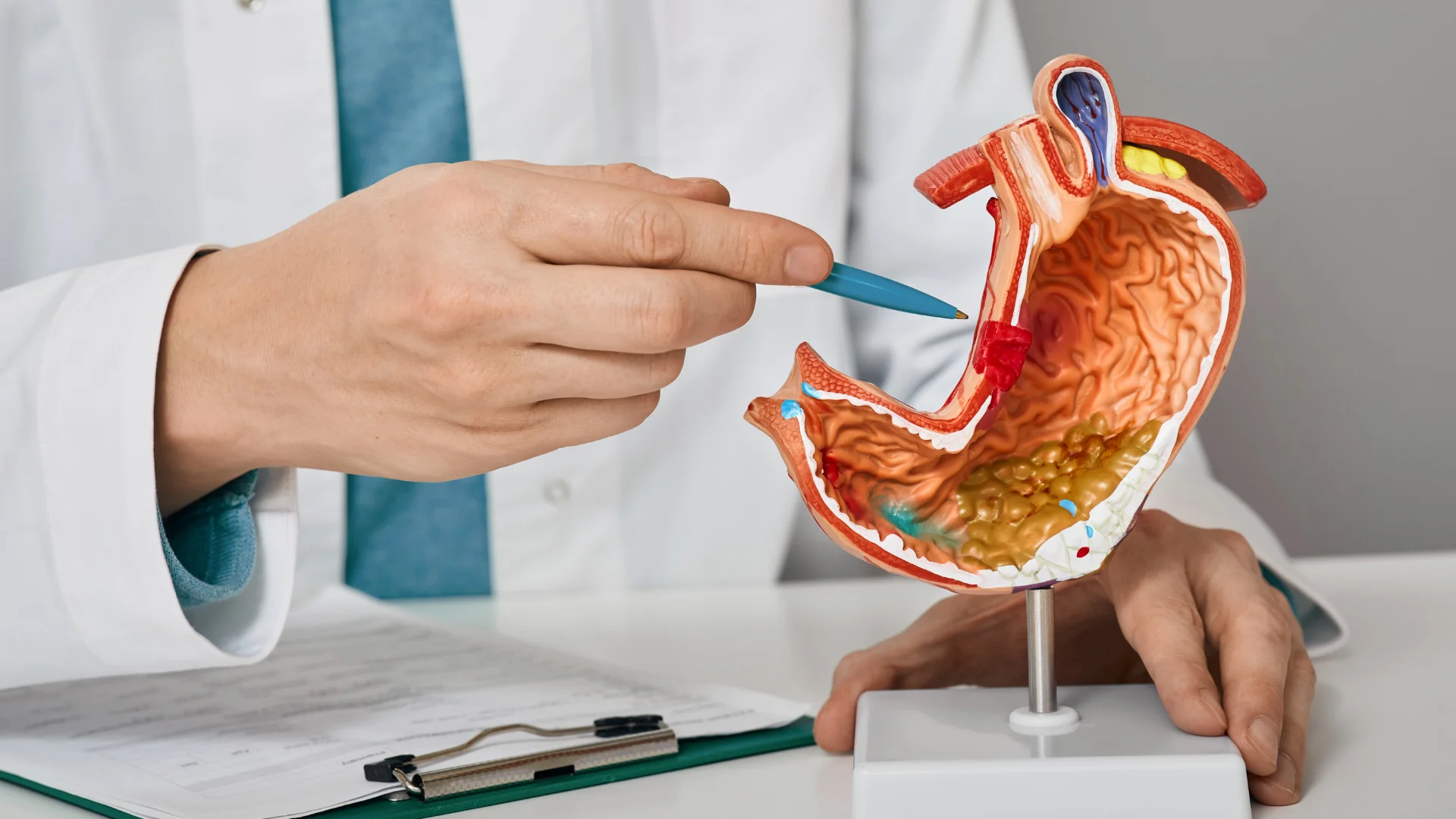
Peptic Ulcers: Understanding the Causes, Symptoms, and Prevention 🕳️
Peptic ulcers are sores or lesions that form in the lining of the stomach or the duodenum (the first part of the small intestine). They develop when the protective lining of the digestive tract is weakened, allowing stomach acid to cause damage. Duodenal ulcers are more common than stomach ulcers, while esophageal ulcers are somewhat rare.
What Causes Peptic Ulcers? 🤔
Several factors can lead to peptic ulcers, including:
Common Symptoms 🔍
Symptoms of peptic ulcers can vary depending on the type and severity. Common signs include:
Diagnosis 🩺
To diagnose peptic ulcers, doctors may use:
Examinations and Imaging
Laboratory Tests
Treatment Options 🏥
Peptic ulcers can be effectively managed with a combination of medications and lifestyle changes. The most common are:
Complications ⚠️
Neglected or untreated peptic ulcers can lead to severe complications, such as:
Warning Signs: Vomiting blood (bright red or coffee-ground-like) or black, tarry stools are indications of a serious ulcer complication. Seek immediate medical attention. 🚨🔔
Prevention Tips 🛡️
While peptic ulcers cannot always be avoided, you can reduce your risk by:
In Conclusion ✨
Peptic ulcers are a common but treatable condition. Early diagnosis and appropriate treatment can prevent serious complications and improve quality of life. If you experience persistent abdominal pain, nausea, or other symptoms, consult a doctor promptly. A healthy lifestyle, stress management, and regular medical check-ups are essential for preventing and managing ulcers effectively.
🩺 Explore out our Check-Up Programs!
DISCLAIMER: The information presented on this page has been intentionally condensed and simplified to make it accessible and easier to understand for the general audience. Its purpose is solely to provide basic awareness and education on the topic discussed. It is important to note that this content is not exhaustive and does not replace or serve as a substitute for professional medical advice, diagnosis, or treatment. Readers are strongly advised to seek consultations with qualified healthcare professionals or specialists for accurate assessment, personalized guidance, and appropriate medical care. Relying solely on the information provided here, without professional oversight, may lead to misunderstandings or inadequate treatment.
Privacy policy
Copyright ©2025 Klinika Kajo. Designed By Vizional